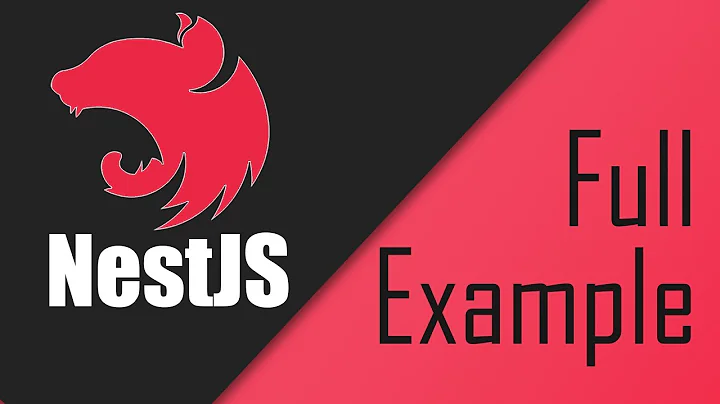How write header with nestjs
17,662
Solution 1
NestJS is build on top of express, so do it like in express:
async login(@Body('username') username: string, @Body('password') password: string, @Res() res: Response) {
const token = await this.authService.validateUser(username, password);
res.set('Authorization', 'Bearer ' + token);
res.send({
success: true,
token,
})
});
Solution 2
In latest versions you could use the @Header decorator within NestJS Core.
import { Controller, Get, Req, Header, Res } from '@nestjs/common';
import { Request, Response } from 'express';
@Controller('cookies')
export class CookiesController {
@Get('set')
// @Header('Set-Cookie', 'cookieName = 12345') // "Usin header decorator"
setCookie(@Res() response: Response): Response {
/*
* If using express approach, pass @Res as param decorator
*/
response.cookie('rememberme', '1') // Using express res object.
return response.send('Cookie has been set! :)')
}
@Get()
checkCookie(@Req() request: Request ): string {
console.log(Object.keys(request.cookies))
if(Object.keys(request.cookies).length > 0){
console.log('cookies =>', request.cookies)
return 'Cookies are set :)'
} else {
return 'Uh, oh! Cookie hasn\'t been set :\'('
}
}
}
Related videos on Youtube
Author by
Walter Armando Cruz
Updated on September 14, 2022Comments
-
 Walter Armando Cruz over 1 year
Walter Armando Cruz over 1 yearhow I can write headers using way nest.js?
I'm currently using this:
import { Controller, Body, Get, Post, HttpCode, HttpStatus, Req, Res } from '@nestjs/common'; import { Request, Response } from 'express'; import { AuthService } from './auth.service'; import { Usuario } from '../usuario/usuario.entity'; import { JsonWebTokenError } from 'jsonwebtoken'; import { request } from 'http'; @Controller('auth') export class AuthController { constructor(private readonly authService: AuthService) { } @Post('login') @HttpCode(HttpStatus.OK) async login(@Body('username') username: string, @Body('password') password: string, @Res() response: Response) { this.authService .validateUser(username, password) .then((token) => { response.setHeader('Authorization', 'Bearer ' + token); let respuesta: any = {}; respuesta.success = true; respuesta.token = token; return response.send(respuesta); }); } }I do not want to use
response.setHeader('Authorization', 'Bearer ' + token);andreturn response.send(respuesta);Thanks for your answers!
-
 DoronG about 4 yearsyour answer did not provide a solution. The
DoronG about 4 yearsyour answer did not provide a solution. TheHeaderdecorator is for reading a header and not setting it. Plus, your code example has it commented out. -
 manu_unter almost 4 years@DoronG I have to object here, although I understand the confusion. There is a
manu_unter almost 4 years@DoronG I have to object here, although I understand the confusion. There is a@Headerdecorator which sets response headers, and it is used on controller methods. But there is also a@Headers(note the plural) decorator which can be used on controller method parameters, and that one will inject a request header as an argument. See docs.nestjs.com/controllers#headers and docs.nestjs.com/controllers#request-object respectively -
 DoronG almost 4 years@manuhornung You are correct. I must admit I was confused. Thank you for the clarification. I have tried to change my vote, but can only do so if the original answer is edited. Can you edit your answer to clarify it as well?
DoronG almost 4 years@manuhornung You are correct. I must admit I was confused. Thank you for the clarification. I have tried to change my vote, but can only do so if the original answer is edited. Can you edit your answer to clarify it as well?









